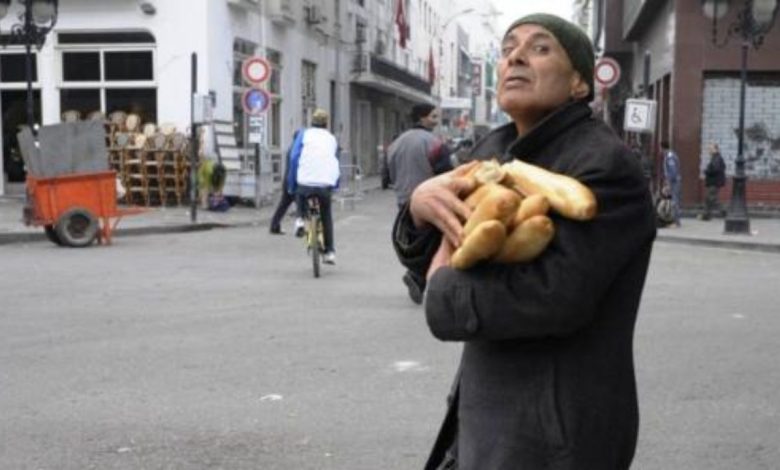Saied accuses political factions of creating the bread crisis

Tunisian President Kais Saied has accused “lobbies and parties” (he did not name) of being behind the crisis of the shortage of bread and other basic food items in a video speech broadcast by the Tunisian presidency on its Facebook page. During his visit on Monday to the headquarters of the Ministry of Agriculture, he met with Minister Abdel Mounim Bellati and a number of officials.
“Citizen bread and basic necessities must be provided, and this is the role of the Ministry of Agriculture, the [government] Grain Bureau, and all the relevant departments in the state, which must confront the monopolists and those who tamper with Tunisian forces,” he said.
Saied has always accused monopolists of involvement in creating a crisis in Tunisia and linking the lack of some basic materials to the conspiracy cases that led to the arrest of a number of opposition politicians, but some in the bakery sector say that they were forced to close because of the large debts and the inability of the state to save them.
“The aim of these successive crises is to inflame society for clear political ends, and the people and those loyal to the homeland must pay attention to this,” he said.
“Officials in Tunisian administrations must be disciplined on the principle of life and the principle of the public interest, not serving other parties and parties that do not appear in the picture but stand behind all of this,” he said. “We know them by name and will not be silent about starving the Tunisian people.”
“Distribution routes, which are supposed to be clear, are not moving in the right way, and the majority of goods affecting the market are managed outside the official routes,” he said.
Speaking to the Tunisian president during the meeting, Minister Bellati said, “Efforts are being made between the ministry and the Grain Bureau to prevent the leakage of grains to unofficial distribution routes, to avoid aggravation of the situation, and to make the crisis more acute.”
Trade Minister Kalthoum Ben Rejeb has criticized opposition groups for raising the specter of a famine in Tunisia, urging citizens not to buy bread “eagerly and intensively” so the crisis does not continue. She said all measures were being taken to restore the subsidized flour supply needed to produce bread.
Since 2021, cereal production in Tunisia has declined for climate reasons, and a few months later, the repercussions have shifted to local markets, where there are no reassuring quantities of solid wheat used in bread production.
The government found that the solution was to resort to imports, but even this was hindered by the country’s financial crisis and the fallout from the Ukraine war.












